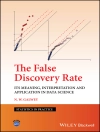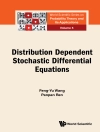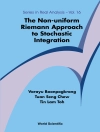The importance of supply chain management has increased over the last few decades. Today, entire supply chains are competing with each other instead of individual companies. As such, supply chain management has become a way for companies to set themselves apart from competing companies and their supply chains. Interestingly, supply chain management mainly focuses on efficiency-oriented topics rather than effectiveness-driven issues, in particular the design of supply chains from manufacturing sites downstream, instead of upstream from the customer.
The Supply Chain Differentiation Guide offers a modern approach to supply chain management. While for many years “one-size-fits-all” approaches to supply chain management were very common, the current efforts of managers and academics alike focus on the simultaneous management of multiple supply chains. Despite the interest of the business sector in the management of multiple supply chains, academia has largely neglected this topicto date. The Supply Chain Differentiation Guide addresses this shortcoming, introducing both established and cutting-edge management methods to the context of supply chain differentiation and providing inspirations for how to improve corporate operations.
Tabla de materias
A: Conception of the supply chain guideline: Introduction.- Why do we need a SCD guideline?.- Supply chain assessments.- Principles and advantages of the supply chain differentiation approach.- Structure of SCD-Guide.- Scalability of the approach.- Morphological box for SCD.- Example cases.- Challenges of an application of the supply chain assessment.- B: Description of TO-BE supply chain: SCD-Guide preparation: Internal analysis: company strategy.- External analysis: company and environment.- Summary of strategic internal and external analysis.- Application example and possible output.- CM 1: Customer segmentation and supply chain strategy.- Goals of content module 1.- Customer requirements and segmentation.- Assignment of supply chain strategies to customer segments.- Application example of SCD-Guide CM1b and possible output.- CM 2: Manufacturing strategy and supply chain management.- Goals of content module 2.- Product modularization.- Modularization and decision of real net outputratio.- Alternative to modularization: the formation of material groups.- Manufacturing strategies.- Manufacturing strategies and supply chain strategies.- Supply chain strategies and customer order decoupling point.- Application example of SCD-Guide CM2.- CM 3.- Goals of content module 3.- Buyer-supplier relationships .- Implications of buyer-supplier relationships on the sourcing procedure.- Supplier management and supply chain strategies.- Alternative approach to managing suppliers: The ABC analysis.- Application example of SCD-Guide CM 3.- CM 4.- Goals of content module 4.- Producing internationally.- Implications of the manufacturing strategies on the supply chain processes.- Supply chain processes in a differentiated supply chain context – The Dell case.- Application example of SCD-Guide CM4 and possible output.- CM 5: Supply chain governance.- Goals of content module 5.- Supply chain governance structure.- Information sharing in supply chains.- Application example of SCD-Guide CM5 and possible output.- CM 6: Supporting activities – project management and human resource.- Goals of content module 6.- Supply chain project management.- Human resources in supply chain management.- The role of human resource management (HRM) in supply chain management.- Application example of SCD-Guide CM6 and possible output.- C: Phase 2 to 5: From the AS-IS analysis…- Phase 2: Identification of AS-IS supply chain and analysis.- Goals of SCD-Phase 2.- Content Module 1a.- Content module 1b.- Content module 2.- Content module 3.- Content module 4.- Content module 5: Supply chain governance.- Content module 6.- Approach for key performance indicators selection.- Application example of SCD-Guide SCD-Phase 2 and possible output.- Phase 3: Supply chain gap analysis in the SCD-Guide.- Goals of SCD-Phase 3.- CM1: Customer segmentation and supply chain strategy.- CM2: Modularization and vertical range of manufacture.- CM3: Supplier segmentation and supply strategy.- CM4: Allocation of supply chain activities.- Functional supply chain processes.- CM5: Supply chain governance.- CM6: Supply chain project management and human resources perspective.- Collection of corrective actions.- Supply chain resources.- Application example of SCD-Guide SCD-Phase 3 and possible output.- Phase 4: Supply chain prioritization and selection of corrective actions.- Goals for SCD-Phase 4.- Prioritization procedure for corrective actions.- Step 1: Goal prioritization.- Step 2: Identification of corrective actions.- Step 3: Pre-selection of corrective actions.- Step 4: Evaluation and prioritization of corrective actions.- Application example of SCD-Guide SCD-Phase 4 and possible output.- Phase 5: Preparation of implementation of supply chain differentiation.- Goals for SCD-Phase 5.- Step 1: project conception.- Step 2: project specification.- Step 3: project planning.- Application example of SCD-Guide SCD-Phase 5 and possible output.
Sobre el autor
Erik Hofmann (Dr. rer. pol., Technische Universität Darmstadt, Germany) is Vice President of the Chair of Logistics Management (Director: Prof. Dr. Wolfgang Stölzle) as well as an Assistant Professor at the University of St. Gallen. His primary research focuses on the intersections of logistics and supply chain management on the one hand, and on finance, performance and strategy issues in supply chain management on the other.
Patrick Beck is a Research Associate at the Chair of Logistics Management (Director: Prof. Dr. Wolfgang Stölzle) at the University of St. Gallen, Switzerland. He studied at the University of Mannheim, Germany, as well as at the University of Edinburgh, United Kingdom, and holds a Master of Science in Business Administration. His research focuses on supply chain strategy and supply chain differentiation.
Erik Füger is a Managing Partner at Inova Management, a Zurich-based business consultancy with a focus on supply chain management. Before his consulting engagement, he was a member of the executive board of a leading ancillary construction company and gained experience in different functions, e.g. manufacturing, engineering and logistics, as well as finance and accounting.












